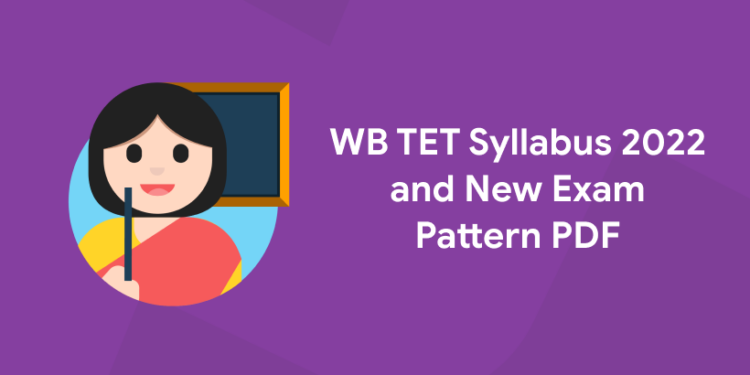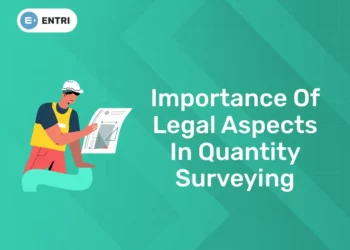Table of Contents
West Bengal TET Syllabus is released on the official website of the West Bengal Board of Primary Education. Having a look into the West Bengal TET Syllabus will improve the knowledge and understanding of the syllabus. Aspirants can easily access the West Bengal TET Syllabus and Exam Pattern for papers- Paper-I and II. Check out the further details in the article below along with all the information and links related to the West Bengal TET Syllabus 2022.
WB TET Syllabus 2022
WB TET Syllabus is let out by the West Bengal Board of Primary Education. As per the recent update, WB TET Notification will be published after 14th October 2022 on the official website. WB TET Exam will mostly be held in the month of December 2022. All the interested aspirants who are going to appear in the WB TET Exam 2022, can start their preparation now. The entire WB Primary TET Syllabus for Paper-I and II are mentioned in the following article for the convenience of the candidates. They must make use of this golden opportunity that the WB Primary TET 2022 is bringing to them by preparing for it thoroughly and effectively.
Download Entri and practice free mock tests and ace your TET exams !!!
West Bengal TET Syllabus 2022 – Overview
The West Bengal Teachers Eligibility Test (WBTET) is held by the West Bengal Board of Primary Education. It is a state-level eligibility test that is taken offline. For further information, check out the table given below.
| WB TET Syllabus 2022 | |
| Name of the Exam | WBTET (West Bengal Teachers Eligibility Test) |
| Exam Conducting Body | West Bengal Board of Primary Education |
| Mode of Application | Online |
| Mode of Exam | Offline |
| Level of Exam | State Level |
| WB TET Papers | Paper – I and II |
WB TET Syllabus 2022 – Important Dates
The WBTET notification will be shortly released by the West Bengal Board of Primary Education on their official website. The aspirants must keep checking this space to stay updated about the upcoming news on the WBTET Exam Dates and other events.
| WBTET Notification 2022 Published | 14th October 2022 |
| Start WBTET Application Form | Yet to be Notified |
| Last WBTET Application Form | Yet to be Notified |
| Last Date to Submit Registration Fees | Yet to be Notified |
| Submit Completed Registration / Print Application Form Last Date | Yet to be Notified |
| WBTET Exam Dates | December 2022 |
| WBTET Result | To be Notified |
West Bengal TET Exam Pattern
All the individuals who are preparing for the WBTET Exam 2022 must go through the WBTET Exam Pattern to ensure they have a fair idea of the marks distribution and marking scheme of the Examination. Aspirants have to answer 150 answers in 150 minutes in WB TET exam. Each question carries 1 mark and there is no negative marking.
West Bengal TET 2022 Exam Pattern Paper – I
| S.No. | Subjects | No. of Questions | Marks |
| 1 | Child Development and Pedagogy | 30 | 30 |
| 2 | Language I (compulsory) | 30 | 30 |
| 3 | Language II (compulsory) | 30 | 30 |
| 4 | Mathematics | 30 | 30 |
| 5 | Environmental Studies | 30 | 30 |
| Total | 150 | 150 |
West Bengal TET 2022 Exam Pattern Paper – II
| S.No | Subjects | No of Questions | Marks |
| 1. | Child Development and Pedagogy: Compulsory | 30 | 30 |
| 2. | Language-I: English Compulsory | 30 | 30 |
| 3. | Language-II: Bengali Compulsory | 30 | 30 |
| 4. | (A)For Mathematics and Science Teachers: Mathematics and Science or
(B) For Social Studies Teachers: Social Studies |
60 | 60 |
| Total | 150 | 150 |
Grab Study Materials for TET Exams !!! Register Now !!!
West Bengal TET Syllabus 2022
The West Bengal TET Syllabus is given in detail in the this section. Check it out carefully to create a solid foundation for your preparation routine. Here you will find the WBTET Syllabus for Paper-I and II which will be updated soon.
WBTET Syllabus for Paper-I
Child Development and Pedagogy
Child Development & Learning
- Concept of development and its relationship with learning.
- Principles of the development of children.
- Influence on Heredity & Environment.
- Socialization processes: Social world & children (Teacher, Parents, Peers).
- Piaget, Kohlberg and Vygotsky: constructs and critical perspectives.
- Concepts of child-centred and progressive education.
- Critical perspective of the construct of Intelligence.
- Multi-Dimensional Intelligence.
- Language & Thought.
- Gender as a social construct; gender roles, gender-bias and educational practice.
- Individual differences among learners, understanding differences based on diversity of language, caste, gender, community, religion etc.
- The distinction between Assessment for learning and assessment of learning; School-Based Assessment, Continuous & Comprehensive Evaluation: perspective and practice.
- Formulating appropriate questions for assessing readiness levels of learners; enhancing learning and critical thinking in the classroom and assessing learner achievement.
- CONCEPTS OF INCLUSIVE EDUCATION AND UNDERSTANDING CHILDREN WITH SPECIAL NEEDS:
- Concept of exceptional children and children with special needs (CWSN).
- Addressing learners from diverse backgrounds including disadvantaged and deprived.
- Addressing the needs of children with learning difficulties, ‘impairment’ etc.
- Addressing the Talented, Creative, Specially abled Learners.
Learning and Pedagogy:
- Alternative concepts of learning in children
- Cognition and emotions
- Motivation and learning
- Classroom management
- Punishment and its legal implications, rights of a child.
- Guidance and counselling: concept, nature and types.
- How children think and learn; how and why children ‘fail’ to achieve success in school performance.
- Basic processes of teaching and learning;
- Children’s strategies of learning; learning as a social activity; social context of learning.
- Child as a problem solver and a ‘scientific investigator’
- Alternative conceptions of learning in children, understanding children’s ‘errors’ as significant steps in the learning process.
- Cognition & Emotions.
- Motivation and learning.
- Factors contributing to learning – personal & environmental.
Download Entri and practice free mock tests and ace your TET exams !!!
Language 1: Critical English
Language Comprehension
- Two passages, one from prose and the other from poetry with questions on comprehension, inference, grammar and test of vocabulary.
- Determiners
- Subject-verb
- Concord
- Interrogatives
- Framing Yes/No & ‘WH’ questions
- Question tags
- Prepositions
- Tense and time
- Phrasal verbs
- Gerunds & Participle
- Auxiliary verbs
Pedagogy for Language Development:
- Challenges of teaching language in diverse classrooms: language difficulties, errors and disorders.
- Introduction to English Phonology: vowels and consonants, syllable division.
- Evaluating language comprehension and proficiency in LSRW (Listening, Speaking, Reading and Writing).
- Teaching-learning materials.
- Strategies for teaching children with special needs (CWSN).
- Remedial teaching.
- Learning and acquisition.
- Principles of Language Teaching.
- Role of listening and speaking; function of language and how children use it as a tool.
- A critical perspective on the role of grammar in learning a language for communicating ideas verbally and in written form.
- Challenges of teaching language in a diverse classroom; language difficulties, errors and disorders.
- Language Skills.
- Evaluating language comprehension and proficiency: speaking, listening, reading and writing.
- Teaching-learning materials: Textbook, multimedia materials, multilingual resources of the classroom.
Language 2: Bengali
Language Comprehension
Two unseen prose passages (discursive or literary or narrative or scientific) with questions on comprehension, grammar and verbal ability.
- Challenges of teaching language in diverse classrooms: language difficulties, errors and disorders.
- Introduction to English Phonology: vowels and consonants, syllable division.
Pedagogy
- Evaluating language comprehension and proficiency in LSRW (Listening, Speaking, Reading and Writing).
- Teaching-learning materials.
- Strategies for teaching children with special needs (CWSN).
- Remedial teaching.
- Learning and acquisition.
- Principles of language Teaching.
- Role of listening and speaking; function of language and how children use it as a tool.
- Critical perspective on the role of grammar in learning a language for communicating ideas verbally and in written form.
- Challenges of teaching language in a diverse classroom; language difficulties, errors and disorders.
- Language Skills.
- Evaluating language comprehension and proficiency: speaking, listening, reading and writing.
- Teaching- learning materials: Textbook, multimedia materials, multilingual resource of the classroom.
Mathematics
- Geometry
- Shapes, spatial understanding, solids, perimeter of rectilinear figures, area of rectangles, practical problems, surface area and volume of solids (sphere, cube, rectangular, parallelepiped), practical problems.
- Measurement
- Numbers
- Arithmetic
- Fractions
- Weight
- Time
- Data handling
- Patterns
- Money
Pedagogical Issues in Mathematics
- Language of Mathematics.
- Community Mathematics.
- Nature of mathematics.
- Methods of teaching mathematics.
- Instructional material in mathematics.
- Evaluation, concept of continuous and comprehensive evaluation. Problems in teaching mathematics.
- Error analysis and related aspects of learning and teaching.
- Diagnostic and remedial teaching.
Environmental Studies
Knowledge of EVS
- Concept and scope of environmental studies.
- Significance of environmental studies.
- Integrated approach in environmental studies.
- Scope and relation of environmental studies to science and social science.
- Approaches of presenting concepts.
- Environmental studies and environmental education.
- Learning principles.
- Activities
- Discussion
- Health and Hygiene.
- Shelters: Types of shelters, characteristics of animal shelters.
- Types of vehicles used, railways, waterways and airways.
- Water: Types of water resources, conservation of water resources, water pollution, cause and prevention of water pollution, impact of water pollution on environment, flood and drought.
- Composition of air, causes and impact of air pollution on environment, greenhouse effect and global warming.
- Different types of soil, soil erosion, impact of soil pollution and its prevention.
Pedagogical Issues
- Concept and scope of EVS.
- Significance of EVS, integrated EVS.
- Environmental Studies & Environmental Education.
- Learning Principles.
- Scope & relation to Science & Social Science.
- Approaches of presenting concepts.
- Activities
Download Entri and practice free mock tests and ace your TET exams !!!
WB TET Syllabus for Paper – II
Child Development and Pedagogy
Child Development & Learning
- Concept of development and its relationship with learning.
- Principles of the development of children.
- Influence of Heredity & Environment.
- Socialization processes: Social world & children (Teacher, Parents, Peers).
- Piaget, Kohlberg and Vygotsky: constructs and critical perspectives.
- Concepts of child-centred and progressive education.
- Critical perspective of the construct of Intelligence.
- Multi-Dimensional Intelligence.
- Language & Thought.
- Gender as a social construct; gender roles, gender-bias and educational practice.
- Individual differences among learners, understanding differences based on diversity of language, caste, gender, community, religion etc.
- The distinction between Assessment for learning and assessment of learning; School-Based Assessment, Continuous & Comprehensive Evaluation: perspective and practice.
- Formulating appropriate questions for assessing readiness levels of learners; for enhancing learning and critical thinking in the classroom and for assessing learner achievemen
Concepts Of Inclusive Education And Understanding Children With Special Needs:
- Concept of exceptional children and children with special needs (CWSN).
- Addressing learners from diverse backgrounds including disadvantaged and deprived.
- Addressing the needs of children with learning difficulties, ‘impairment’ etc.
- Addressing the Talented, Creative, Specially abled Learners.
Learning and Pedagogy:
- Alternative concepts of learning in children.
- Cognition and emotions.
- Motivation and learning.
- Class-room management.
- Punishment and its legal implications, rights of a child..
- Guidance and counselling: concept, nature and types.
- How children think and learn; how and why children ‘fail’ to achieve success in school performance.
- Basic processes of teaching and learning;
- Children’s strategies of learning; learning as a social activity; social context of learning.
- Child as a problem solver and a ‘scientific investigator’
- Alternative conceptions of learning in children, understanding children’s ‘errors’ as significant steps in the learning process.
- Cognition & Emotions.
- Motivation and learning.
- Factors contributing to learning – personal & environmental.
Download Entri and practice free mock tests and ace your TET exams !!!
Language 1: English
Language Comprehension
- Two passages, one from prose and the other from poetry with questions on comprehension, inference, grammar and test of vocabulary.
- Determiners
- Subject-verb
- Concord
- Interrogatives
- Framing Yes/No & ‘WH’ questions
- Question tags
- Prepositions
- Tense and time
- Phrasal verbs
- Gerunds & Participle
- Auxiliary verbs
Pedagogy for Language Development:
- Challenges of teaching language in diverse classrooms: language difficulties, errors and disorders.
- Introduction to English Phonology: vowels and consonants, syllable division.
- Evaluating language comprehension and proficiency in LSRW (Listening, Speaking, Reading and Writing).
- Teaching-learning materials.
- Strategies for teaching children with special needs (CWSN).
- Remedial teaching.
- Learning and acquisition.
- Principles of language Teaching.
- Role of listening and speaking; function of language and how children use it as a tool.
- Critical perspective on the role of grammar in learning a language for communicating ideas verbally and in written form.
- Challenges of teaching language in a diverse classroom; language difficulties, errors and disorders.
- Language Skills.
- Evaluating language comprehension and proficiency: speaking, listening, reading and writing.
- Teaching- learning materials: Textbook, multimedia materials, multilingual resource of the classroom.
Download Entri and practice free mock tests and ace your TET exams !!!
Language 2: Bengali
Language Comprehension
Two unseen prose passages (discursive or literary or narrative or scientific) with questions on comprehension, grammar and verbal ability.
- Challenges of teaching language in diverse classrooms: language difficulties, errors and disorders.
- Introduction to English Phonology: vowels and consonants, syllable division.
- Evaluating language comprehension and proficiency in LSRW (Listening, Speaking, Reading and Writing).
- Teaching-learning materials.
- Strategies for teaching children with special needs (CWSN).
- Remedial teaching.
- Learning and acquisition.
- Principles of Language Teaching.
- Role of listening and speaking; function of language and how children use it as a tool.
- Critical perspective on the role of grammar in learning a language for communicating ideas verbally and in written form.
- Challenges of teaching language in a diverse classroom; language difficulties, errors and disorders.
- Language Skills.
- Evaluating language comprehension and proficiency: speaking, listening, reading and writing.
- Teaching- learning materials: Textbook, multimedia materials, multilingual resource of the classroom.
Mathematics
- Geometry
- Shapes, spatial understanding, solids, perimeter of rectilinear figures, area of rectangles, practical problems, surface area and volume of solids (sphere, cube, rectangular, parallelepiped), practical problems.
- Measurement
- Numbers
- Arithmetic
- Fractions
- Weight
- Time
- Data handling
- Patterns
- Money
Pedagogical Issues in Mathematics
- Language of Mathematics
- Community Mathematics
- Nature of mathematics
- Methods of teaching mathematics
- Instructional material in mathematics
- Evaluation, concept of continuous and comprehensive evaluation. Problems in teaching mathematics
- Error analysis and related aspects of learning and teaching.
- Diagnostic and remedial teaching.
Environmental Studies
A: Knowledge of EVS
- Concept and scope of environmental studies
- Significance of environmental studies.
- Integrated approach in environmental studies.
- Scope and relation of environmental studies to science and social science.
- Approaches of presenting concepts.
- Environmental studies and environmental education.
- Learning principles.
- Activities
- Discussion
- Health and Hygiene
- Shelters: Types of shelters, characteristics of animal shelters.
- Types of vehicles used, railways, waterways and airways.
- Water: Types of water resources, conservation of water resources, water pollution, cause and prevention of water pollution, impact of water pollution on environment, flood and drought.
- Composition of air, causes and impact of air pollution on environment, greenhouse effect and global warming.
- Different types of soil, soil erosion, impact of soil pollution and its prevention.
B: Pedagogical Issues
- Concept and scope of EVS.
- Significance of EVS, integrated EVS.
- Environmental Studies & Environmental Education.
- Learning Principles.
- Scope & relation to Science & Social Science.
- Approaches of presenting concepts.
- Activities
- Experimentation/Practical Work.
Grab Study Materials for TET Exams !!! Register Now !!!
WB TET Syllabus 2022: FAQs
1. When WB TET exam will be conducted?
Ans. The WB TET Notification will be released shortly on the official website of the WB Board of Primary Education.
2. How can I apply for TET in West Bengal?
Ans Interested individuals need to fill out and submit their WB TET Application Form 2022 before the last date of submission. They must ensure that all the information entered by them is accurate. They need to pay the West Bengal TET Application Fees to complete the WB TET Application Process 2022.
3. Is there any negative marking in West Bengal TET Exam 2022?
Ans. No, there is no negative marking in the West Bengal TET Exam 2022.
4. How many questions do I need to answer in WB TET Exam Paper-I 2022?
Ans The aspirants will have to solve 150 questions in the WB TET Exam Paper-I 2022.
5. Who conducts the West Bengal TET 2022?
Ans West Bengal Board of Primary Education conducts the WB TET 2022.
Download Entri and practice free mock tests and ace your TET exams !!!













